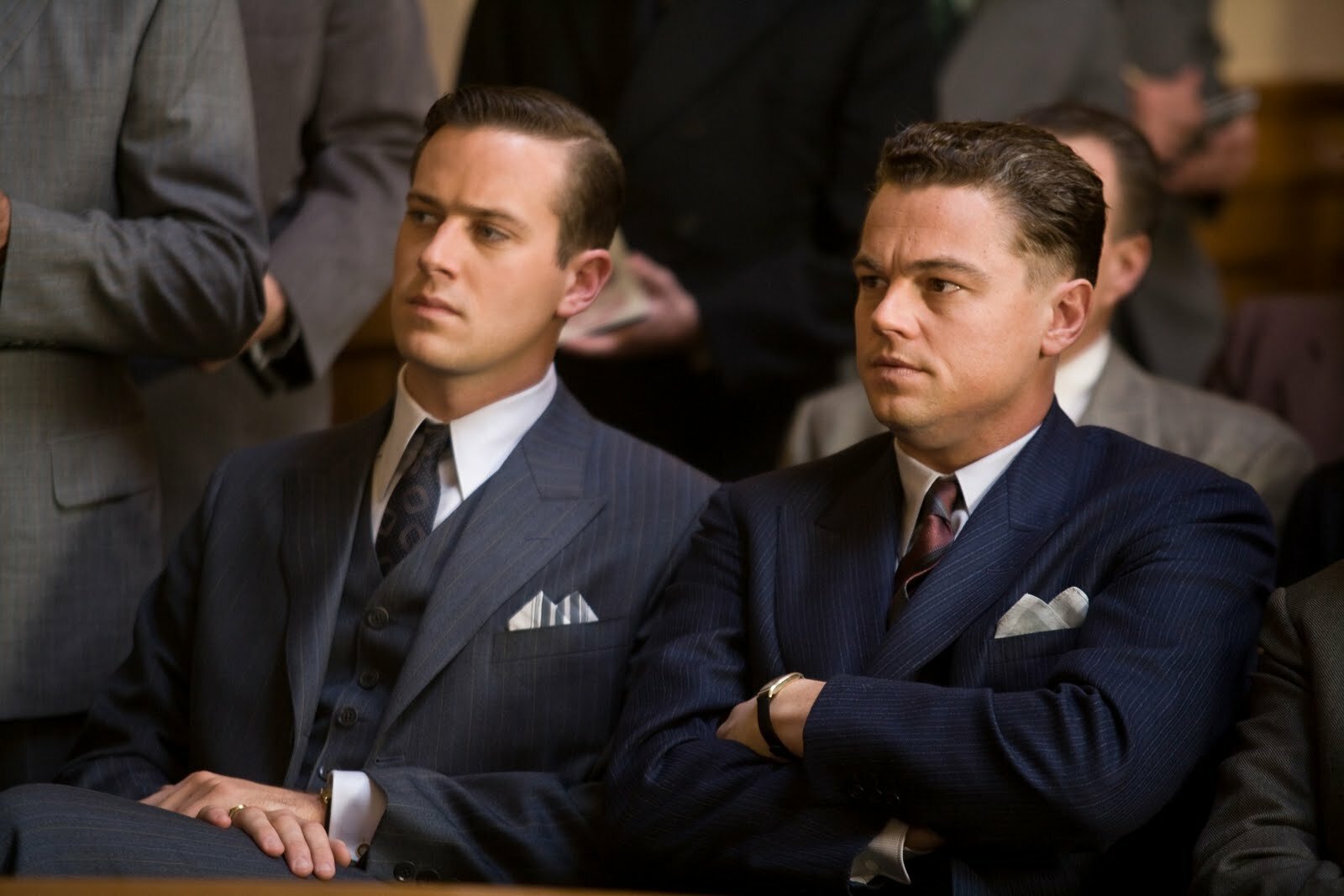Movie Monday: J. Edgar – Dick Tracy from The Bizarro World
November 28th, 2011
“I don’t give a fuck about who wants to get married to anybody else! Why not?! We’re making a big deal out of things we shouldn’t be making a deal out of … Just give everybody the chance to have the life they want.”
Eastwood may be the quintessential cowboy, but that position puts him at odds with his conservative comrades and squarely in the libertarian camp on gay rights, which makes the message of J. Edgar all the more confusing.
The film follows an elderly J. Edgar Hoover as he compiles his memoir, recalling his glory days as the first Director of the FBI busting communists and trampling liberties. But the story is completely overshadowed by the “homoaffectionate” relationship between Hoover and his right hand man, Associate Director Clyde Tolson. I say, “homoaffectionate” because it’s never clear that they consummated their love affair, but it’s complete with awkward hand holding and a jealous fist fight. We even get to see a middle-aged Hoover dressed up in his domineering mother’s house dress. Honestly the depiction strains credulity. Maybe it happened, maybe it didn’t. If you want history you’re probably better off reading the Wikipedia article.
Major political events in Hoover’s career are brushed over without any context, from the deportation of world renowned anarchist Emma Goldman, to the blackmailing of Martin Luther King Jr. Even the assassination of John F. Kennedy passes without even naming the President. Hoover is informed by phone with the phrase, “the President has been shot.” As if he was to busy reading “My Pet Goat” to be bothered with the details.
So, why focus so heavily on the homosexual angle of Hoover’s life? It feels a bit like it’s intended to discredit the FBI. There’s no hint of any notion of a romantic past when the FBI weren’t tyrannically efficient at circumventing civil rights. They were from their outset badge heavy thugs with no regard for the law they claim to revere. But alleging homosexuality to discredit a person is not exactly consistent with Eastwood’s previous statements, and if that was the purpose why not focus more on his well-documented violations and injustices?
It could be that the purpose was to demystify homosexuality. The screenplay was written by Dustin Lance Black who also wrote the script of “Milk,” the story of California’s first openly gay elected official, Harvey Milk. So, that makes sense. But if you wanted to normalize homosexuality why would you pick someone as petty, conniving and narcissistic as J. Edgar Hoover? In the film he props up his desk with book so he can literally look down on people. He cheats at horse races. He compiles confidential records to blackmail any public figure, including incoming presidents, who he’s afraid might diminish his power. And after all his patriotic genuflections his only motivation appears to be the adoration of others.
Even as an old man he accuses Clyde, his lifelong partner in this strange love story, of disloyalty for having the audacity to point out that Hoover’s memoir is full of lies and exaggerations designed to aggrandize himself.
In the end the film comes off more like activism than a biography, but the message of that activism never coagulates into anything intelligible. I left feeling more confused than informed.
Don’t forget to visit our official website for Silver Circle: http://SilverCircleMovie.com


